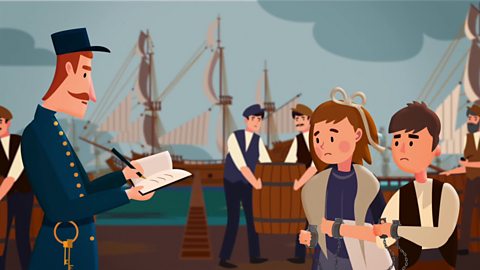Watch: punishing crime during World War Two
Watch the video to find out about crime and punishment in Britain during World War Two.
Man: Now's your chance,
Man: All the police are busy dealing with the bombing.
Mavis: I'm scared, what if I get caught?
Man: Our little baby needs food.
Man: It wasn't our fault our food was all destroyed in the bombing raid yesterday.
Guard: Oi! What are you doing in here? Looting and stealing.
Bars shut.
Judge: Stealing so that you could get more than everyone else eh!
Judge: Not happy with you ration allowance?
Judge: Rationing means everyone can survive and get the same amount.
Judge: If people like you take more then there will not be enough to go around.
Mavis: Our home was destroyed in the bombing yesterday.
Man: We were just trying to get some food.
Man: We needed the food to feed our little baby, she's hungry.
Judge: Silence.
Judge: Rules are there for a reason.
Mavis: I'm sorry, our baby was hungry.
Judge: Regardless, if I bend the rules for one person, people will start thinking they could get away with any old excuse.
Judge: Taking advantage of the countries troubles by stealing and looting.
Judge: I could sentence you to death but you seem like a nice young girl.
Judge: You'll have to pay a fine of 20 pounds.
Mavis: We can't afford that!
Judge: If you can't pay then you'll have to spend six months in jail.
Mavis: Oh no! no, no.
Life and crime during World War Two
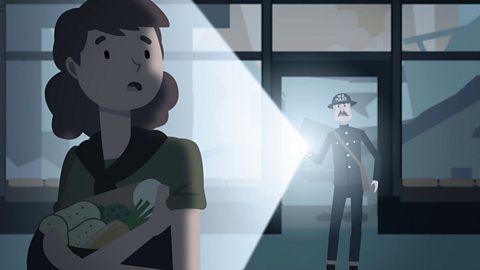
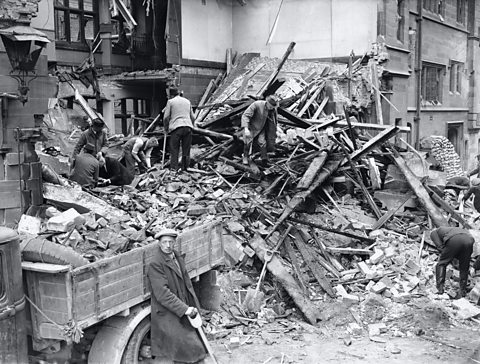
World War Two was fought between 1939 and 1945.
The government introduced new rules such as blackouts, air raid warnings and rationing.
Towns and cities, had no lights at night and so crime increased.
In many cities, lots of houses and shops were bombed. Stealing and robbery happened more.

Did you know?
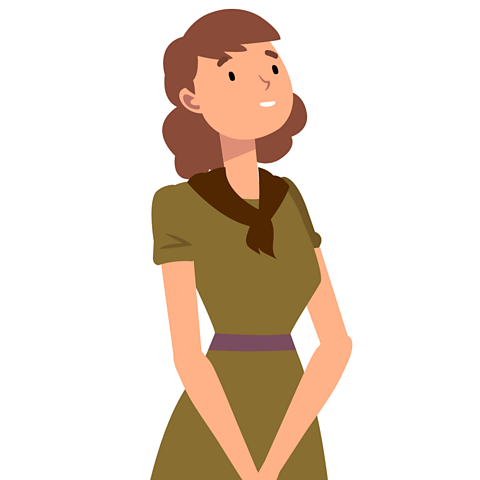
- During the war, British Double Summer Time was temporarily introduced.
- This meant the clocks went forward two hours from Greenwich Mean Time (GMT) rather than one hour.
- This was done to increase the nation's productivity and help the war effort.
Police duties increase due to the war
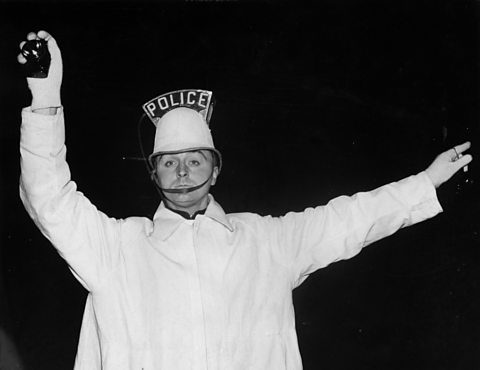
- The Police also had new wartime duties. They had to make sure people obeyed the wartime blackout rules, help the rescue services during and after bombing raids and search for soldiers who had deserted (run away) from the army.
- Many police were called blackout bobbies because they had to make sure that no light from houses and shops could be seen outside. This was to protect buildings from German bombers flying overhead.

Punishing criminals during the war
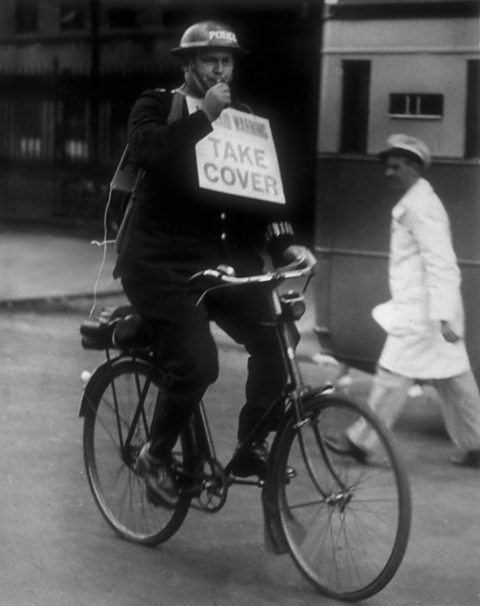
Looting was a big problem. The number of bombed properties meant stealing increased. Many were given fines or short prison sentences.
Black market: Selling items on the black market, with no ration card, could mean a fine and imprisonment.
Murder rates increased dramatically during the war. Murder carried the death penalty.

Activities
Activity 1: WW2 crime quiz
Bitesize Primary games. gameBitesize Primary games
Play fun and educational primary games in science, maths, English, history, geography, art, computing and modern languages.

More on Crime and punishment
Find out more by working through a topic
- count1 of 10
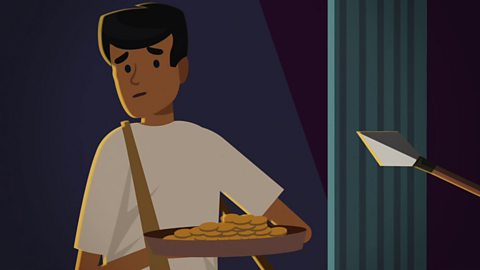
- count2 of 10
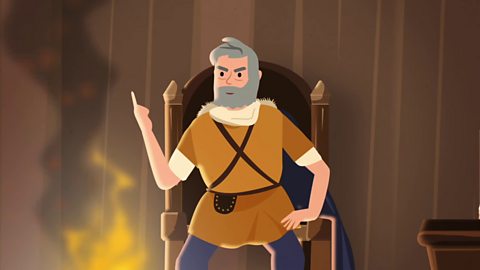
- count3 of 10
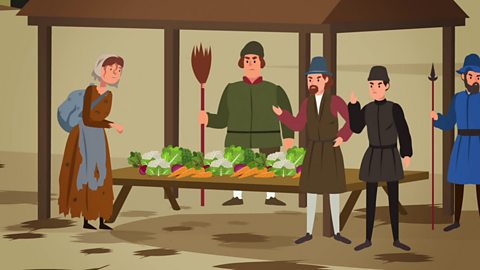
- count4 of 10
